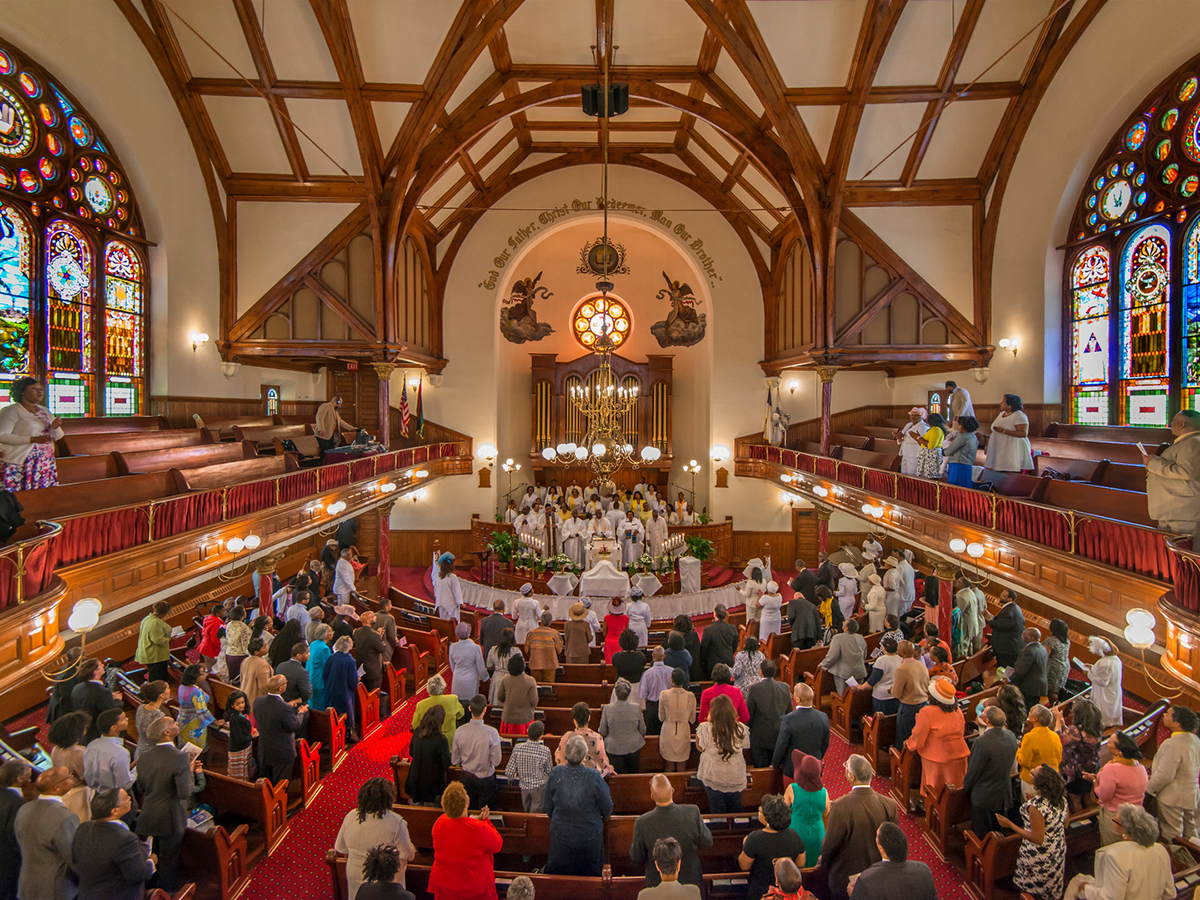A city’s houses of worship attract visitors from near and far. Some wish to maintain their worship practices while touring. Others want to look at amazing structures, both preserved and new. Philadelphia, with its many inter-denominational houses of worship and its global citizens, truly feeds the souls of its Black and Brown worshippers and architectural enthusiasts. The Freedom to Liberty season, which covers Juneteeenth through July Fourth, is a time to reflect on how faith has been an integral part of freedom, liberty and civil rights since the nation was founded.
A review of the history of Philadelphia’s houses of worship also speaks to the agency of Black people who took matters into their own hands, with faith leaders often guiding the way. The role of faith in communities of color was at the intersection of strong principles, socio-economic improvement, community resources and great social events including music.
Richard Allen and Absalom Jones and their followers left St. George’s Methodist Church because they no longer wanted to be subjected to growing racial tensions and insults. This departure became the genesis of the first African Methodist Episcopal (AME) church in the world, the famed Mother Bethel AME. Mother Bethel AME was founded in 1794, by Richard Allen, the congregation stands to this day on land that has been continuously owned by the church.


Mother Bethel African Methodist Episcopal (AME) Church — Photo by R. Kennedy for Visit Philadelphia
The African Episcopal Church of St. Thomas was founded in 1792 and ratified in 1794 by and for persons of African descent to foster personal and religious freedoms and self-determination. The original African Church was an outgrowth of the Free African Society, a mutual aid organization established in 1787 by Absalom Jones, Richard Allen and others, to assist the Black population in Philadelphia. The early religious services were held in private homes and in a school. The Reverend Absalom Jones became the first Episcopal priest of African American descent and the first rector of St. Thomas’ Church.
Philadelphia is home to more than 200,000 Muslims and 40 mosques. The City’s Muslim presence dates back to colonial times and began to grow significantly in 1960s. In 2018 the doors of the newest and largest mosque in Philadelphia, Baitul Aafiyat, opened. Khalifa Mirza Masroor Ahmad, the international head of the Ahmadiyya Muslim Community, flew in from London to be the keynote speaker for the opening events sending the message that Baitul Aafiyat, is a public space for people to come together, no matter their religion.
In 1951, Rabbi Louise Elizabeth Dailey, the daughter of a Baptist minister, founded Temple Beth’El in the West Oak Lane neighborhood. The unique worship experience includes an upbeat music style that is vigorous and joyous, ensuring that the people are engaged. Rabbi Debra Bowen, daughter of the founder, continues the services today. The congregation identifies as “conservodox,” meaning that is has characteristics of both Orthodox and Conservative Judaism.
Enon Tabernacle Baptist Church is the largest of the African American congregations in Philadelphia, with over 15,000 members. Its beginnings date back to 1876 under the leadership of Rev. James D. Brooks. Enon is a beacon in the community providing comprehensive outreach services as well as powerful voices in contemporary America.
Community service has been a cornerstone of worship in the African American community with the work of the late Rev. Leon Sullivan serving as one the greatest examples. Rev. Sullivan founded Opportunities Industrialization Center, a series of training schools aimed at putting African Americans to work in various industries, in 1964. By 1969, it had about 20,000 people enrolled in its job placement programs. OIC still operates in 22 states and Africa. Rev. Sullivan’s Progress Plaza on North Broad Street opened in 1968 as the first African American-owned shopping center in the United States.
The combination of faith, worship and economic opportunity remains central to the Black experience in Philadelphia. For a more comprehensive list of places to visit, explore A Trail of Sacred Sites of Greater Philadelphia.
"freedom" - Google News
June 11, 2022 at 05:31AM
https://ift.tt/Lra5xOn
Freedom to Liberty: This Far by Faith in Philadelphia - Visit Philadelphia
"freedom" - Google News
https://ift.tt/8NfEsro
https://ift.tt/Cmcn30S
Bagikan Berita Ini














0 Response to "Freedom to Liberty: This Far by Faith in Philadelphia - Visit Philadelphia"
Post a Comment